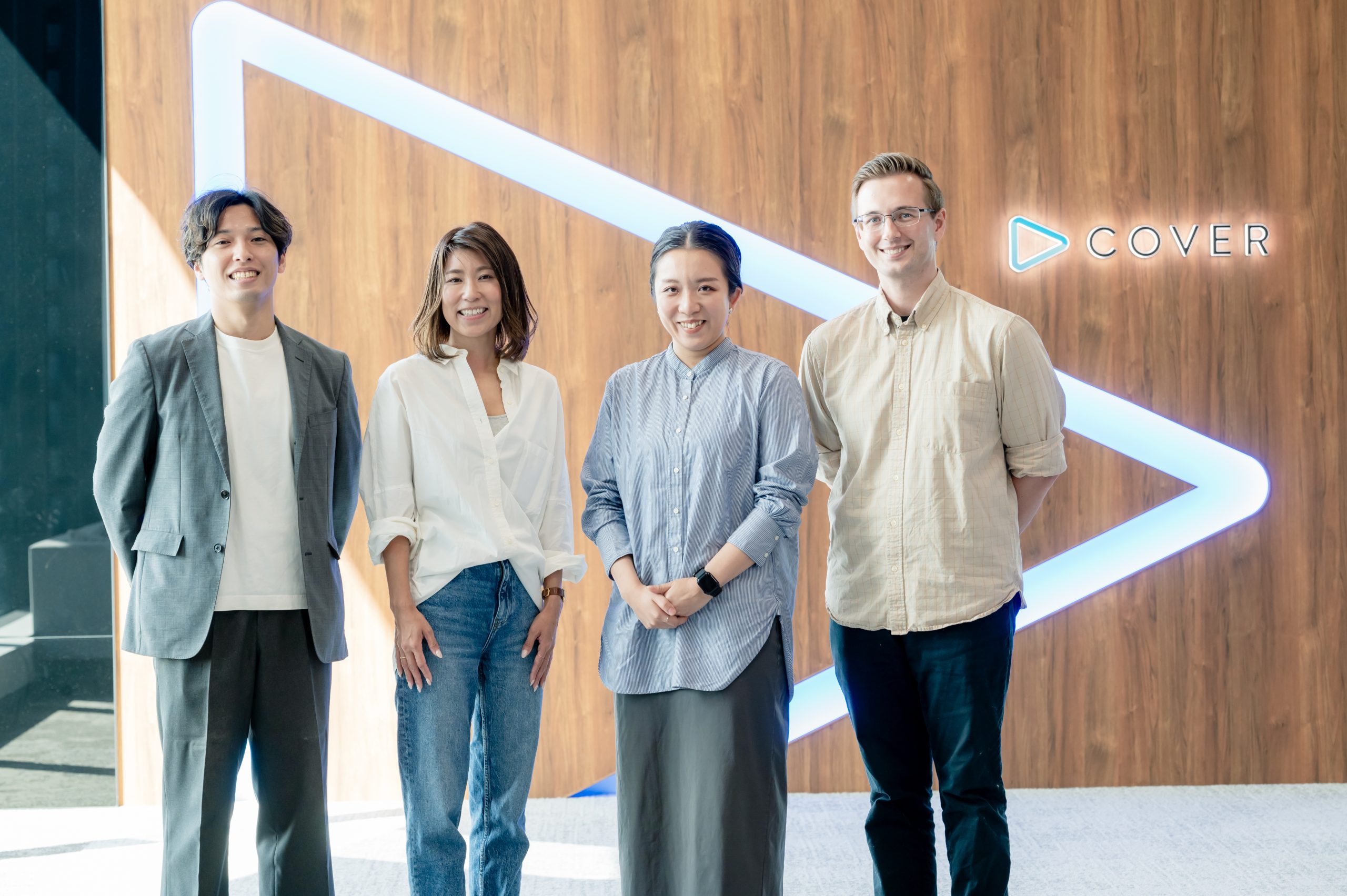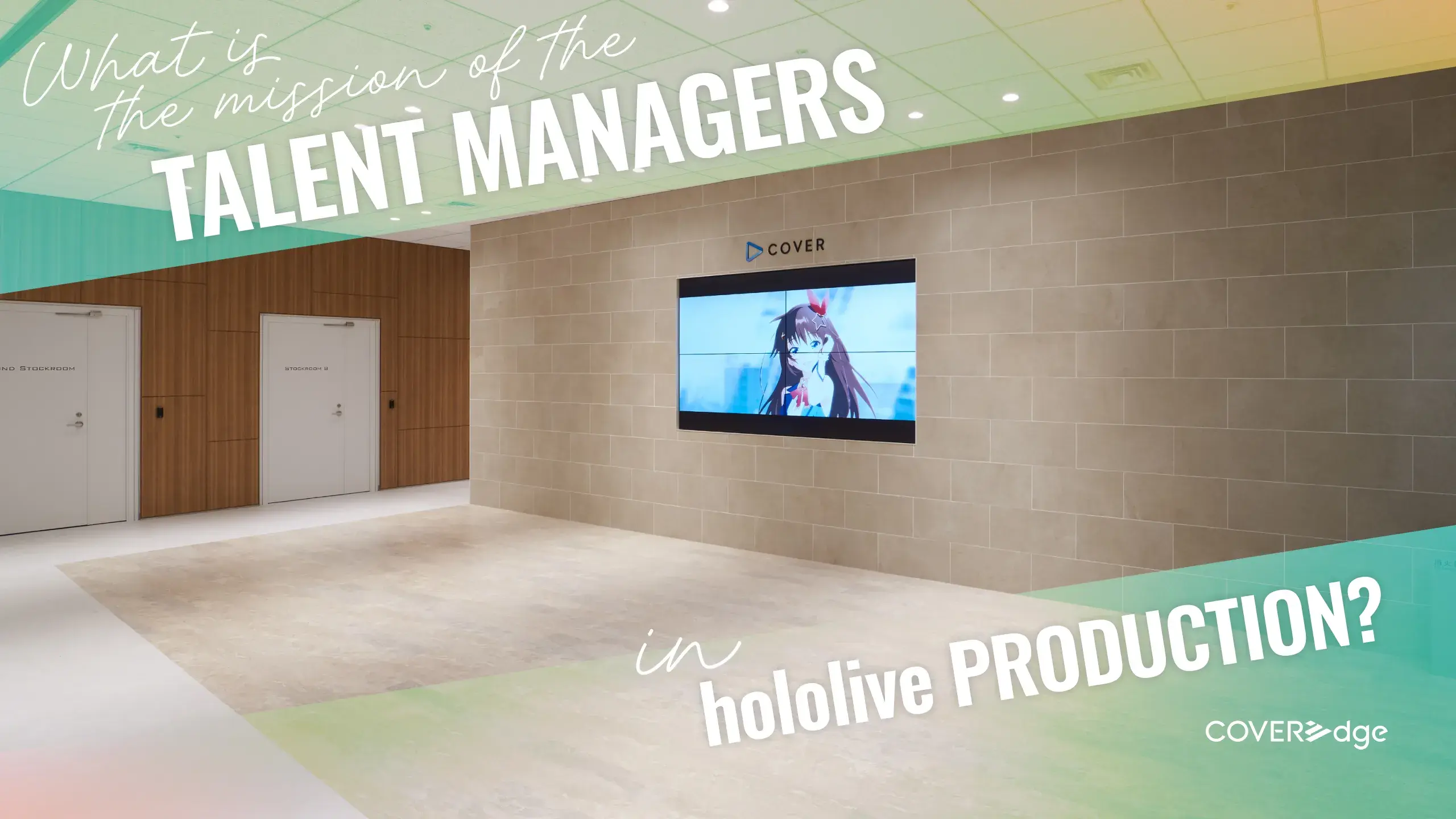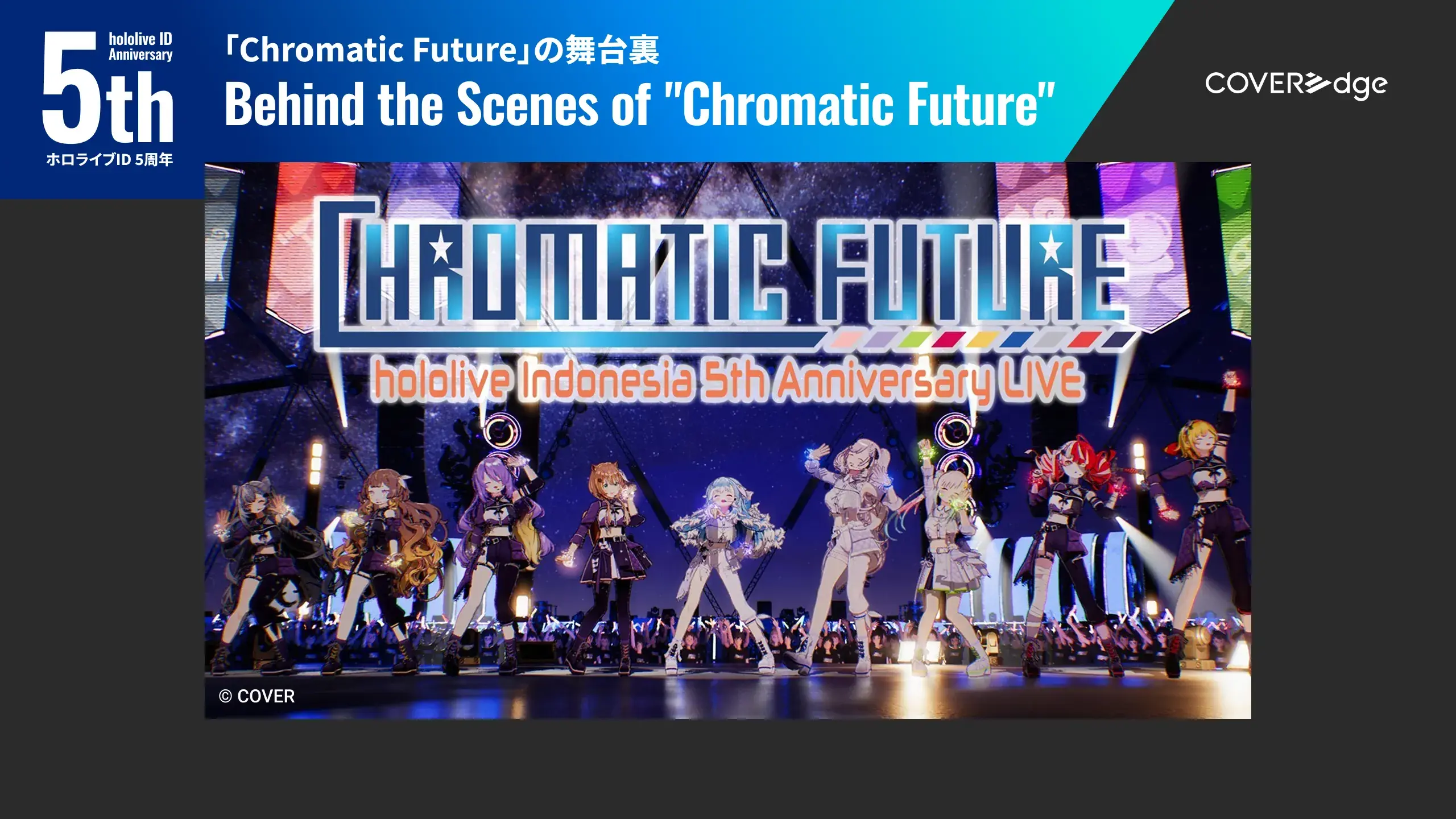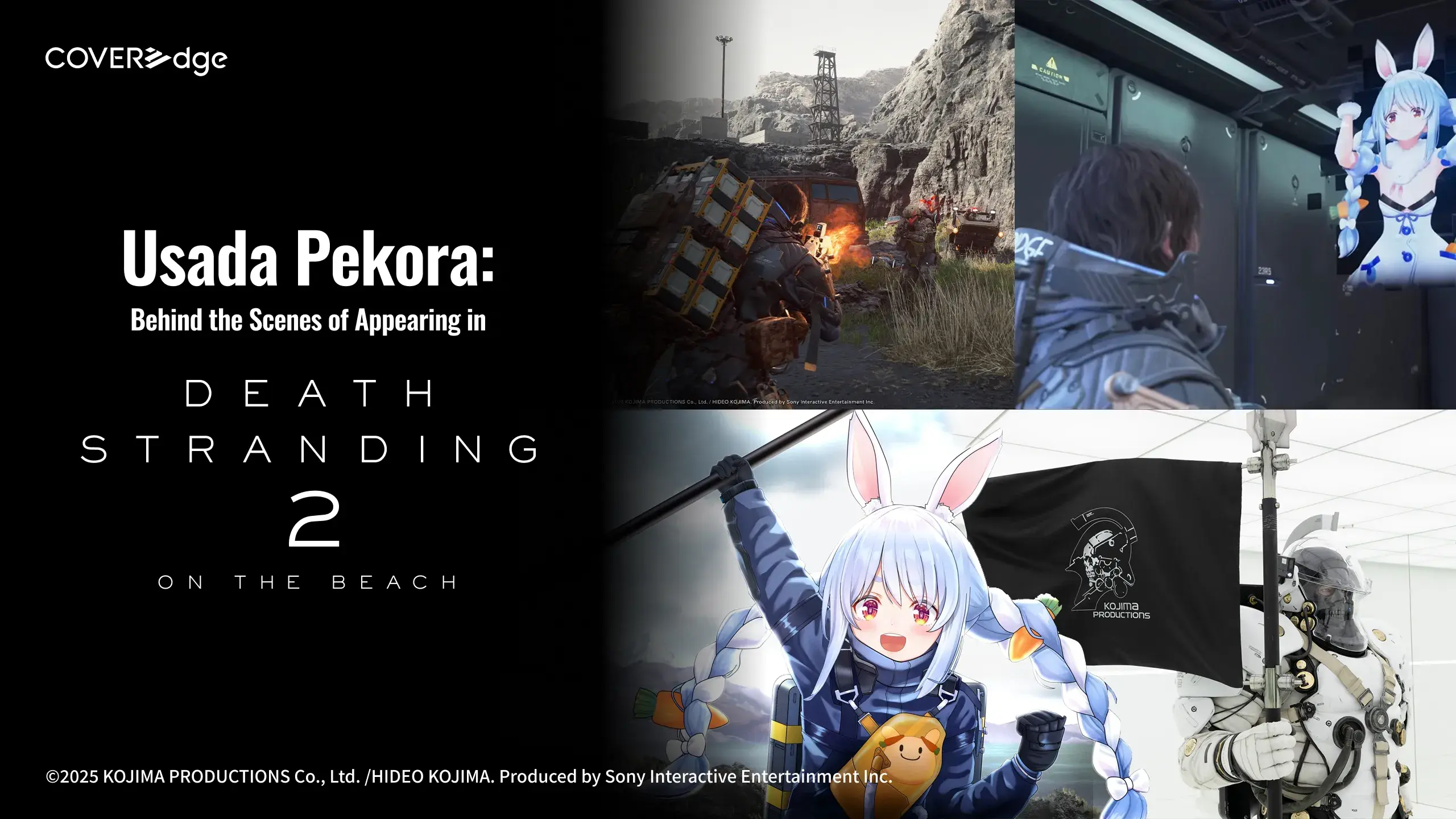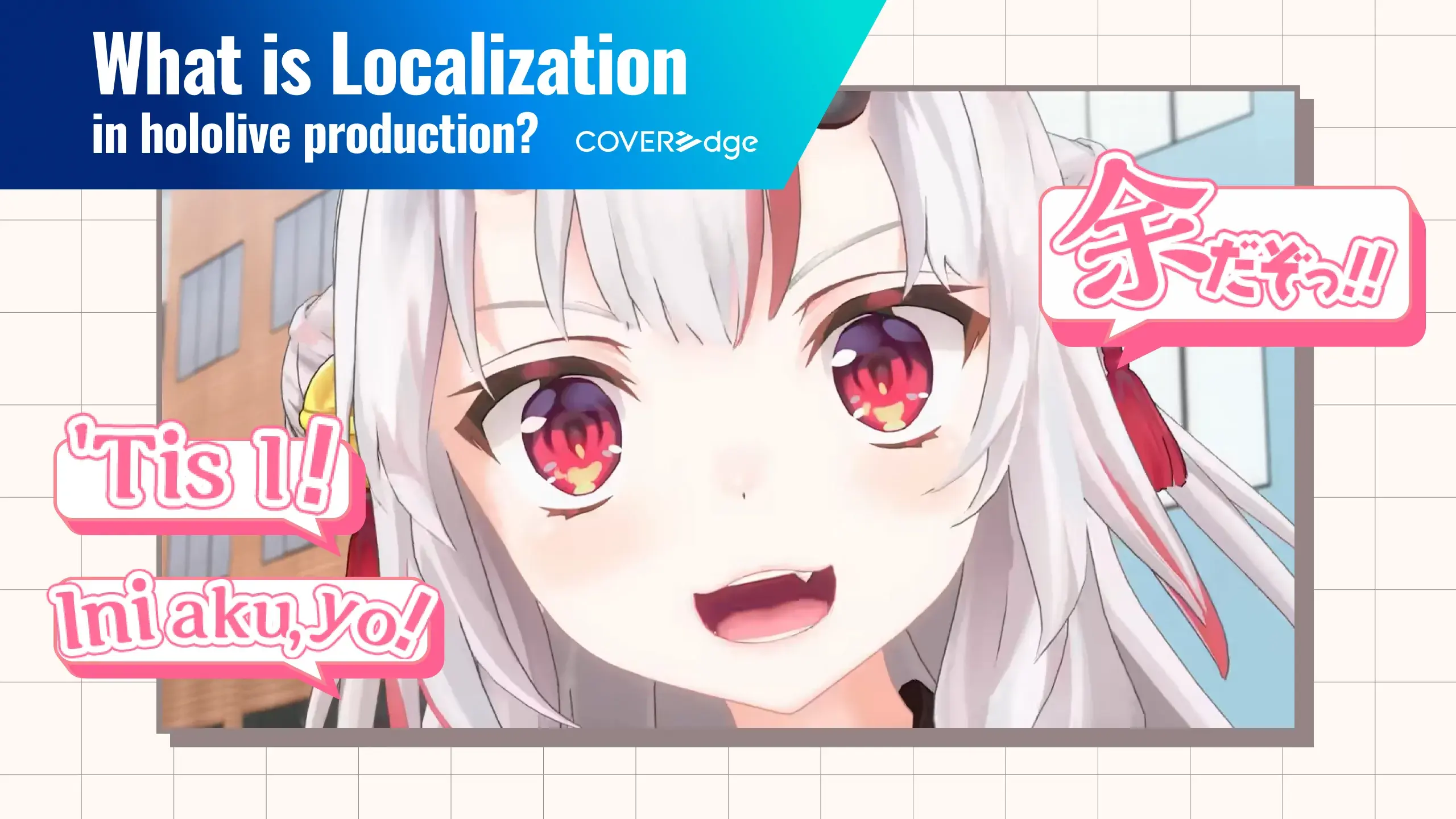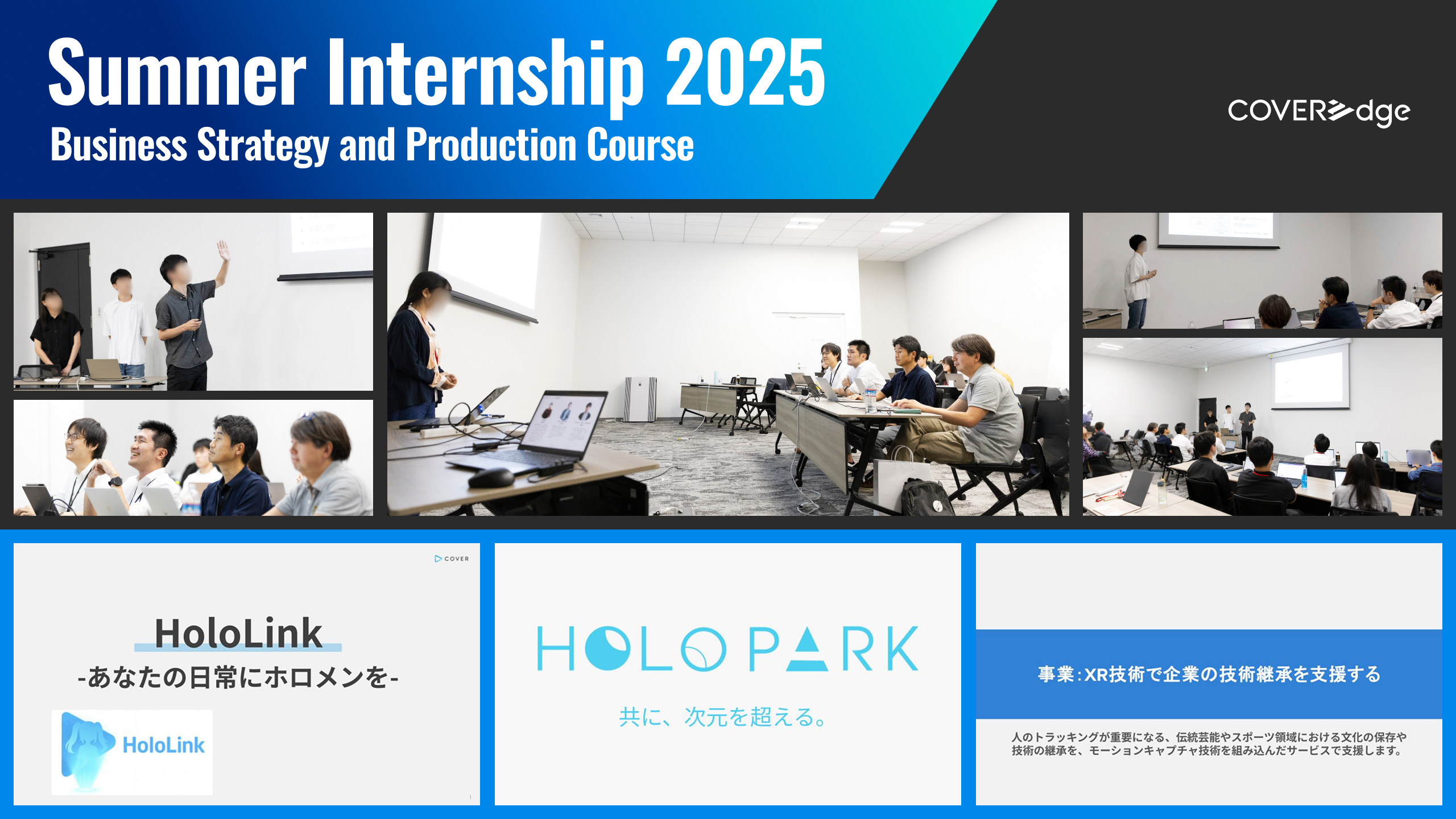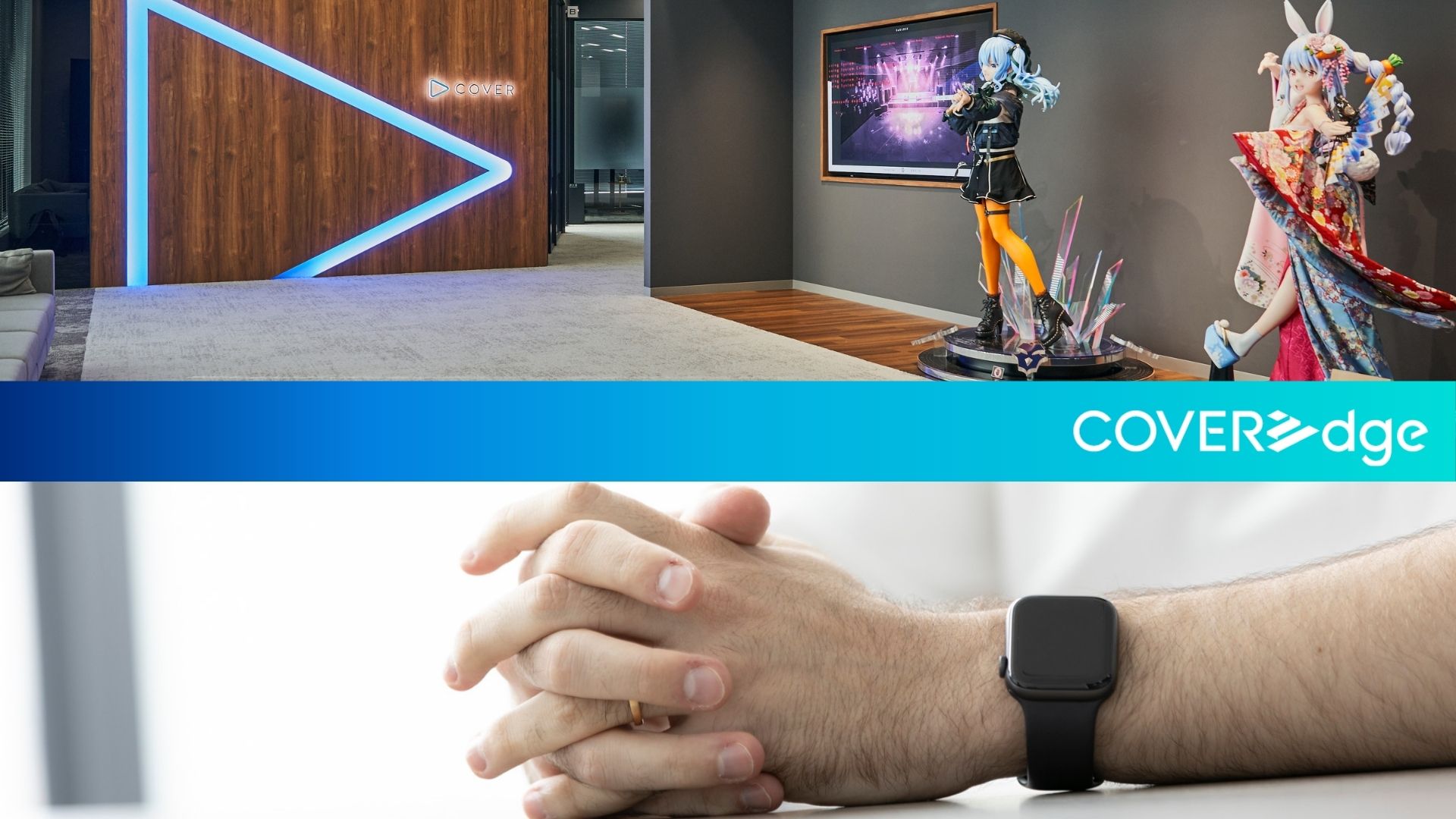
At COVER, under the mission of “Together, Let’s Create Culture Loved by All,” we have been committed since 2022 to hiring and nurturing new graduates who will help shape the future, leading the way for a new era of entertainment.
The very first step for new graduates, and the foundation for all the work they’ll take on in the future, is our New Graduate Training Program. It’s designed not only to build the essential skills needed as an employee, but also to instill a mindset for driving the business forward and a perspective for enhancing one’s own market value. It brings together all the key elements for growth.
So, what kind of training did the 13 new graduates who joined us in 2025 experience? We sat down with Akinori Hayamizu from the Human Resources Planning Team in the Human Resources Division, Human Resources Department, the key individual behind the program, to learn more about its details and the vision behind it.
New Graduate Training: An Effort Backed by the Entire Company
At COVER, the New Graduate Training Program is led by the Human Resources Planning team, which is responsible for designing and managing its concept and framework. But bringing the program to life requires the support of many others – dedicated employees at the core of each department, as well as executive offices, division heads, and even our CEO, Motoaki Tanigo.
It is a company-wide effort that transcends departments and job titles, reflecting the importance we place on nurturing the new graduates.
Inside COVER’s New Graduate Training
The business skills our program aims to develop fall into two main areas. The first covers the fundamental abilities every professional needs, regardless of role. The second focuses on the technical skills required for specific job functions.
From their very first day on April 1, new graduates take part in an intensive six-day program designed to build the fundamental abilities every professional needs.
This year, the training period ran from April 1 through April 8, including the weekend. After training is complete, follow-up sessions will continue every two months until the end of graduates’ second year, with a focus on strengthening logical thinking skills.
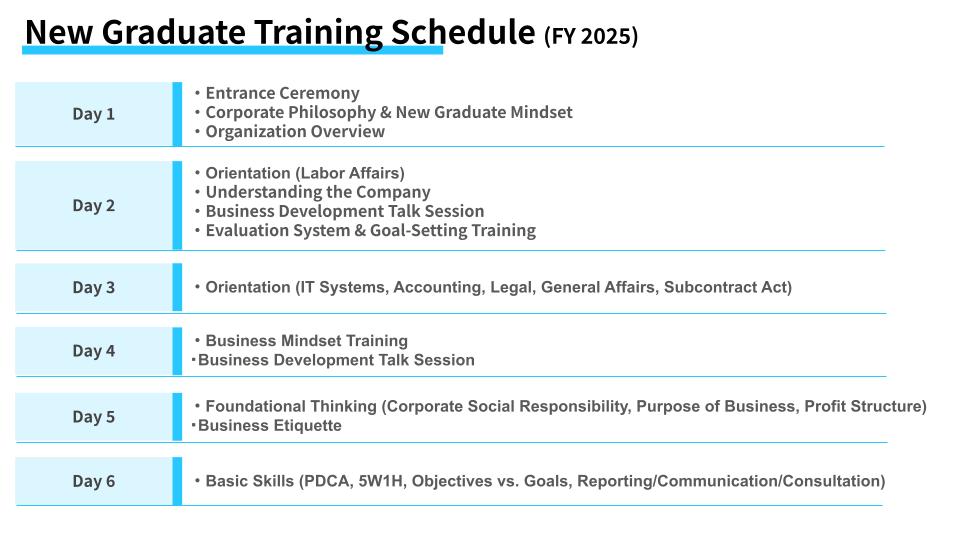
Six-Day Training Period in April
・Mindset Shift Training
This program is designed to help new graduates make the transition from student life to the professional world. The goal is to update values and ways of thinking formed during their school years, and to build the mindset needed to succeed as a working professional.
・Understanding the Company
Regarded as the most important part of the program, this training is built on three pillars: understanding the organization, understanding the business, and understanding the flow of commerce. (See the interview with Mr. Hayamizu below for more details on the program itself)
・Orientation
In this program, members of our back-office teams walk new graduates through the rules, procedures, and systems employees need to know, from administrative paperwork to workplace guidelines. It also serves as an important part of building a deeper understanding of the company.
As part of this framework, a component called Skill Development is built in to help new graduates acquire the core business skills needed in any role. This program is further divided into two areas:
・Business Etiquette
This program covers the basics every professional should know – from how to handle phone calls and writing emails to understanding seating etiquette. While chances to learn these skills have become less common in recent years, they can be needed at any time, so by providing this foundation, we help new graduates feel confident and prepared to navigate any situation as working professionals.
・Fundamental Thinking
This program introduces the fundamental approaches needed to succeed in any organization, including practices like reporting, communication, and consultation, as well as the PDCA cycle. Delivered mainly through lecture-style learning, it is designed to give new graduates the framework they need to think strategically and achieve results in their work.
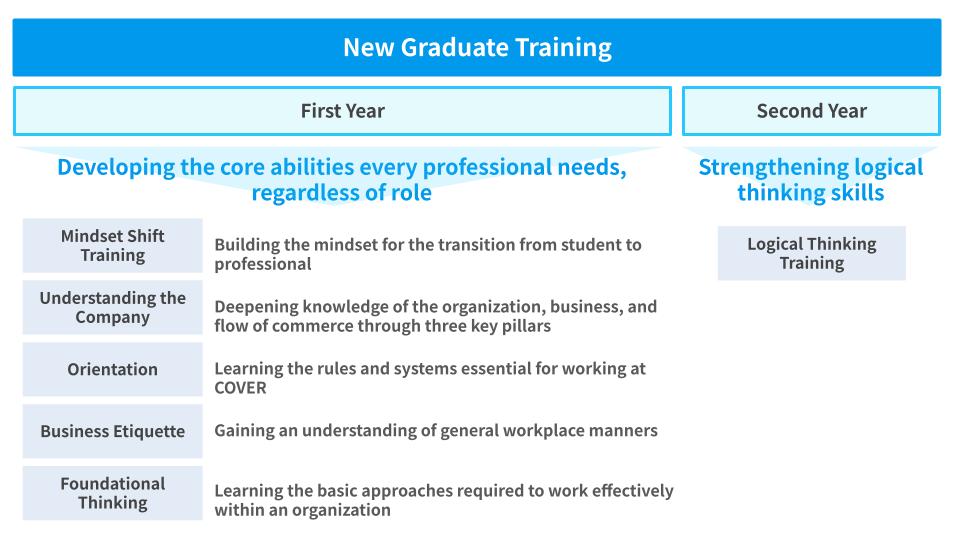
Starting with the Essential Skills Everyone Needs, No Matter the Role

―For this feature, we spoke with Mr. Hayamizu, who is closely involved in onboarding new employees after they join the company.
To start off, Mr. Hayamizu, could you tell us about the work you’re responsible for?
The Human Resources Planning team is responsible for a wide range of human resources initiatives – from designing evaluation systems and onboarding new hires to running employee satisfaction surveys. We’re also in charge of company-wide events, including the annual All-Employee Meeting.
Within the Human Resources team, I focus on designing and carrying out training and development programs, including the New Graduate Training Program. When creating these plans, I look at them from a two- to three-year perspective, focusing on how to support employees during the first few years of working life, from the time they first join as new graduates.
―It appears that training at COVER covers quite a wide variety of topics, doesn’t it?
That’s right. I also design custom programs aligned with each department’s development goals, as well as various business training sessions for existing employees. COVER first started out in the streaming and content business, but as our scope has expanded, we’ve come to work with people from many different industries,so along with that growth, the skills required have also evolved, and we develop training programs that keep up with changes within the company.
―To jump right in, what was your impression of the new graduates who joined in 2025?
This year we welcomed 13 new graduates, with an even split between men and women. The roles are also evenly balanced – half in creator/engineering positions and half in business – so it feels like a well-rounded group overall.
What’s most striking is how bright, connected and proactive they are. During the training sessions, many were the first to raise their hands, sharing their own opinions with confidence while keeping the atmosphere lively and collaborative.
―So the April training is designed to give new graduates a solid footing regarding the fundamental skills needed to thrive as professionals, is that right?
That’s right. I think many aspects of basic business etiquette are either seen as unnecessary today or simply not taught anymore. For example, many students these days do almost everything on their smartphones, so some have limited experience working on a computer and have hardly emailed anyone at all, for instance.
However, being able to use a computer is still often essential in the business world, and knowing how to properly email others can make a real difference when it counts. Personally, it’s important for new graduates to build these fundamental skills early on, as they’ll become the foundation for leveling up later. I see our graduate training program as a way to raise the market value of our new graduates, and that’s something I keep in mind when designing it.
Understanding Stakeholders
―Are there any training programs unique to COVER?
This year, we placed particular focus on the “Understanding the Company” section of the training that I briefly touched on earlier. As COVER’s business model continues to grow and become more complex, we want new graduates to really think about questions such as: Who are our customers? What are we paying for? Who are the stakeholders behind each business? Developing this awareness is something we see as essential.
At COVER, our business is built on four main business models: Streaming/Content, Live/Event, Merchandising, and Licensing. For this year’s training, we wanted new graduates to understand each of these areas. To achieve that, we worked with the Corporate Planning Office, which has a cross-sectional view of all businesses, as well as with the heads of the Production Business-related Divisions to help new graduates explore a more fundamental question: What is the VTuber business built on, and what is it ultimately striving for?
We also asked each of our executive officers to share insights into their respective areas of responsibility – explaining how their organizations are structured and the role each one plays within the company.
―So, the Human Resources Planning Team doesn’t just create the program on its own, but collaborates with different departments and divisions to devise training programs.
That’s right. Another area we particularly focused on was “Understanding the Business.” As part of this, we held a “Business Understanding Talk Session,” where senior employees shared stories from projects carried out in 2024. The goal was to help new graduates understand what kind of skills we want them to develop through projects and the mindset we hope they’ll bring to their work. Rather than simply presenting the projects, the speakers talked about how they engaged with stakeholders and what factors ultimately led those projects to succeed.
For example, the Creative Production Department, which handles live streaming, gave a lecture on what goes on behind the scenes of YouTube live broadcasts. At hololive production, we stream around 100 live events on YouTube each year, including birthday concerts and generation-wide performances. Initially, our Human Resources Planning team considered framing the session to be about “developing technologies to deliver better streams,” but the Creative Production Department went down a slightly different path: they wanted new graduates to understand the streaming process itself first, which is what their team values most.
There was also a session that focused solely on the “Shishiro Hai” project. Shishiro Hai is a fighting video game tournament hosted by hololive production talent Shishiro Botan. The project originally began when one of COVER’s sales representatives heard about Shishiro Botan’s desire to host an event of her own, leading them to work together to make it a reality.
But, of course, a salesperson’s mission is primarily to boost sales figures, so making Shishiro Hai a reality was a gradual process to ensure it would be the best version of itself, needing the approval from managers and alignment with other stakeholders, overcoming one obstacle after another. As a department, we continually have to ask ourselves how we can best turn our talents’ ideas into fully-fledged projects, which is the kind of mindset we hope our new graduates will develop as well.
―It sounds like a fascinating program.
It really is. We also had a session on Hoshimachi Suisei’s “Bibideba,” which has surpassed 100 million views, where the team shared how they created strategies to generate hype. Even I, from the business side of things, found myself getting genuinely excited hearing what they had to say. I never want to design a program that feels dull, so I’m always making sure that the content is genuinely enjoyable for all involved.
Core Principles: What Defines the VTuber Business?
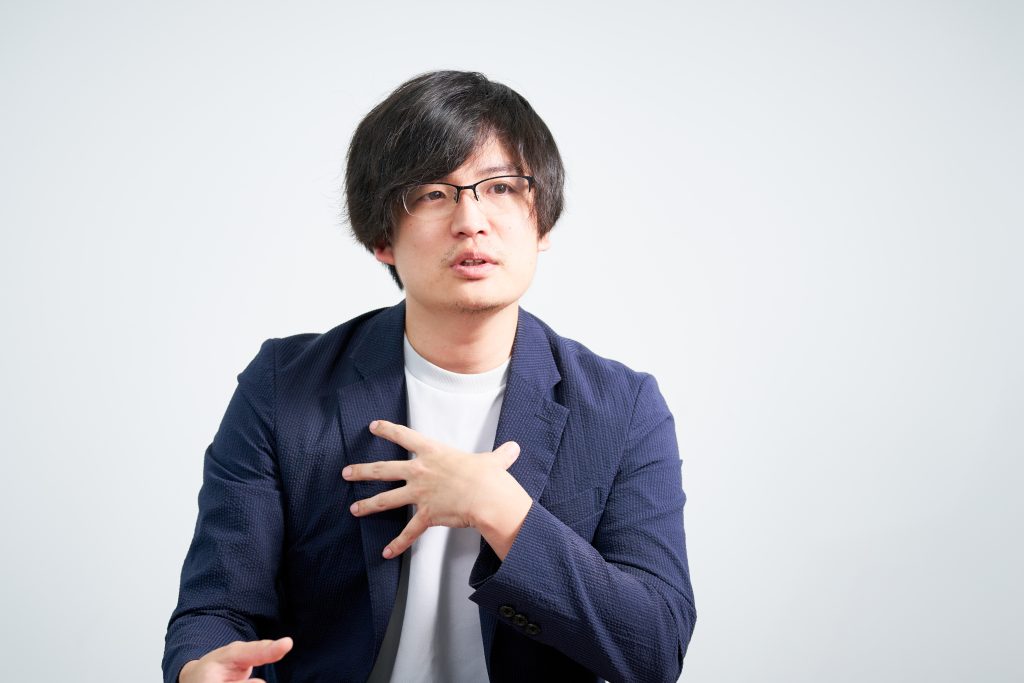
―Aside from making it enjoyable, what else did you prioritize when designing the training program?
Our new graduate training program took on its current form in 2024. At that time, we discussed its content with management and set a clear goal: to develop new hires into future managers. While also looking 10 to 20 years down the track, we mapped out the skills and knowledge employees should acquire in their second and third years, and then worked backward to define what needed to be covered during their first year. This approach became the backbone of the program.
At COVER, employees in their second and third years are expected to step up as project owners – driving initiatives on their own. And it’s not just about taking over existing projects. They’re required to develop the ability to create and execute entirely new ideas from scratch. That, of course, is not an easy task.
For example, even the most carefully planned project schedule can fall apart when uncontrollable and unpredictable factors come into play. That’s why it’s essential to break down what is required at the very start – clarifying what’s needed in advance if you’re going to take something on, and identifying potential risks. And when you ask other departments for support, you need to clearly communicate what needs to be done, to what extent, and by when.
When you connect the dots, it becomes clear that managing projects in one’s second year first requires solid foundations from one’s first year, developing skills in defining what’s required and mastering thought frameworks needed to support it. That’s why the first year focuses on developing logical thinking skills, while the second year shifts to a Project Management Training Program designed to equip graduate employees with the ability to see a project through to completion.
―It sounds like the training program is designed with the future in mind. How has this year’s program evolved compared to last year?
Last year, the program ran for five days, but this year it was extended to six. The biggest addition was the “Understanding the Company” session, included for the very first time.
I imagine many companies include programs to help new graduates understand their business, but at COVER, that kind of content hadn’t been part of our training – and to be honest, I didn’t initially think it was essential either. However, when it came time to design the 2025 program, I realized how important it was for new graduates to gain a clear understanding of the business model because, without understanding the foundation of COVER’s business model, there may be misunderstandings or even a breakdown in trust.
For instance, every VTuber talent brings their own individuality and creativity, but if employees were to see them merely as character IPs and mistakenly think that talents are only there to help realize their own project ideas, there is a huge risk of losing the trust of not only the talents themselves but also the fans who support them.
What COVER employees need to be doing is using their professional expertise to take the individuality and creativity of our talents and shape their ideas into something even better for the ultimate fan experience: a mindset every employee at COVER must have. Since new graduate training is about establishing such standards, we felt it was essential to clearly define “the mindset of a COVER employee” and include the “Understanding the Company” session.
We’re now taking steps to ensure that the standards instilled into this year’s new graduates are upheld by our existing employees as well.
―So the new graduate training program has also become a starting point for programs aimed at existing employees, is that correct?
Absolutely. I believe that hiring and developing new graduates is also a way of shaping the culture of our company. With each cycle of recruitment and training, a mindset of passing the fundamentals one was taught to the next generation begins to become ingrained into the fabric of the company. That’s how culture takes root and grows.
CEO Motoaki Tanigo has set a goal of making VTuber a part of everyday life worldwide by 2030. To make that vision a reality, it’s vital that we continue to build and strengthen the values and culture that define COVER.
―What kind of results have you seen from the new hires after training?
We conducted surveys after the program, and the feedback has been overwhelmingly positive. One new hire shared how, after having a proposal turned down, they broke it down using a logic tree to identify what exactly needed improvement. By doing so, s/he was able to receive more constructive feedback.
Managers have also shared positive feedback, including that “they’ve really mastered the basics of business etiquette,” and one new hire even proudly reported that they “handled an issue by recalling what [they had] learned in training!” It’s clear that the program is already making a positive impact.
―Looking ahead, what kinds of training programs would you like to implement in the future?
I have two main directions. The first is continuing to build the foundation of our company culture through training and the second being expanding opportunities for skill development. At COVER, we already have a system that supports employees who are eager to learn, but I’d like to raise awareness of it and use it to boost motivation for growth.
As for new graduate training, my hope is to eventually incorporate programs where they can work together to create projects. While that may still be a challenge at the moment, expanding hands-on learning is one of my key goals. At the same time, I want to deliver elements of the new graduate training to existing employees as well, so we can further strengthen COVER’s standards across the company.
The Fusion of Talent Individuality and Professional Expertise
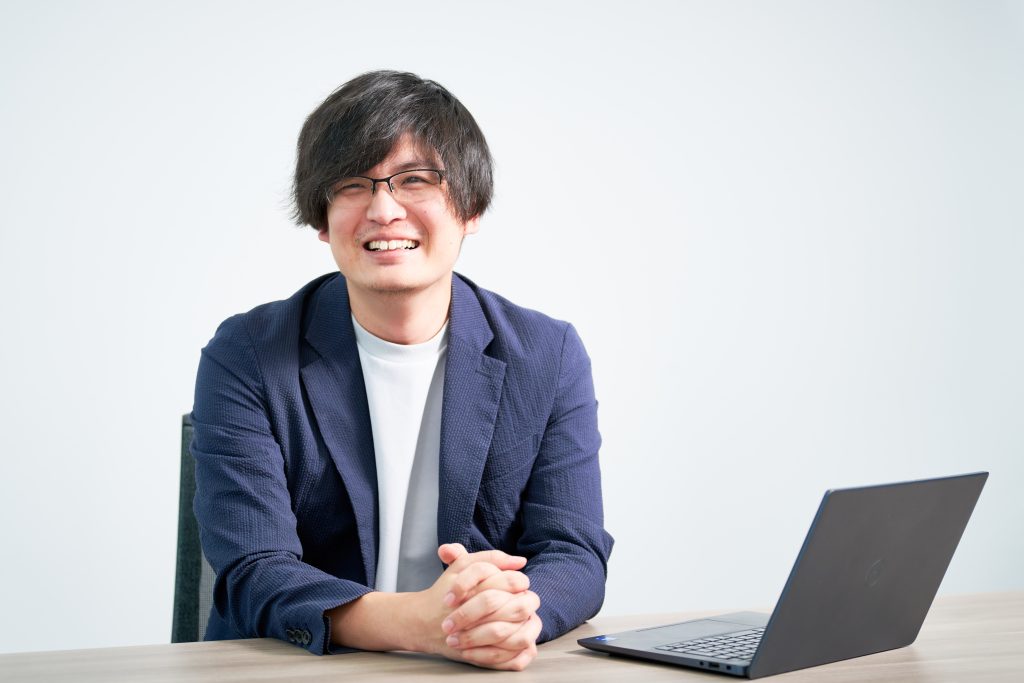
―If you had to describe what COVER means to you, what would you say?
Hmm, that’s a tough one, but for me, COVER is the fusion of our talents’ creativity and individuality with the professionalism of our employees. In fact, I’m borrowing this expression from Atsuo Nakayama, who has written extensively on the VTuber business.
During onboarding for mid-career hires, I always tell them it’s the individuality and creativity of our talents, combined with the professionalism of COVER employees and the support of our many stakeholders, that allows us to provide fans with truly moving experiences. That’s why I believe it’s essential for everyone at COVER to uphold that sense of professionalism at all times.
Source: Atsuo Nakayama, Creator Wonderland: The Entertainment Revolution in the Land of Wonder and the Dynamic Identity of Generation Z, Nikkei BP, February 26, 2024, p. 211.
―Lastly, do you have a message for students currently job hunting, or those who will be in the future?
To those in the middle of job hunting or students, I’d say keep an open mind and stay curious. Some people join us without much knowledge of VTubers, entertainment, or anime, but to create great content as a team, it’s important to make a conscious effort to understand the content you are producing.
No matter the industry, having the curiosity to explore different things – regardless of whether you truly like them or not so much – and continuing to learn and absorb new things is an essential quality to thriving in the workforce. I encourage everyone to stay curious and keep having new experiences every day.
―Although the Human Resource Planning Team takes the lead, new graduate training is truly a company-wide initiative, with everyone working together to support and invest in the growth of each new hire: a shared commitment that will hold COVER in good stead for years to come.
【2027年度 新卒採用】
皆さんが 既存の枠にとらわれず、新しい価値を世の中に生み出したい 強い熱意と当事者意識を持って、ビジネスを推進したい 常に変化し、成長し続ける環境で自分を試したい と考えているなら、カバーは最適な舞台をご用意できます!
-
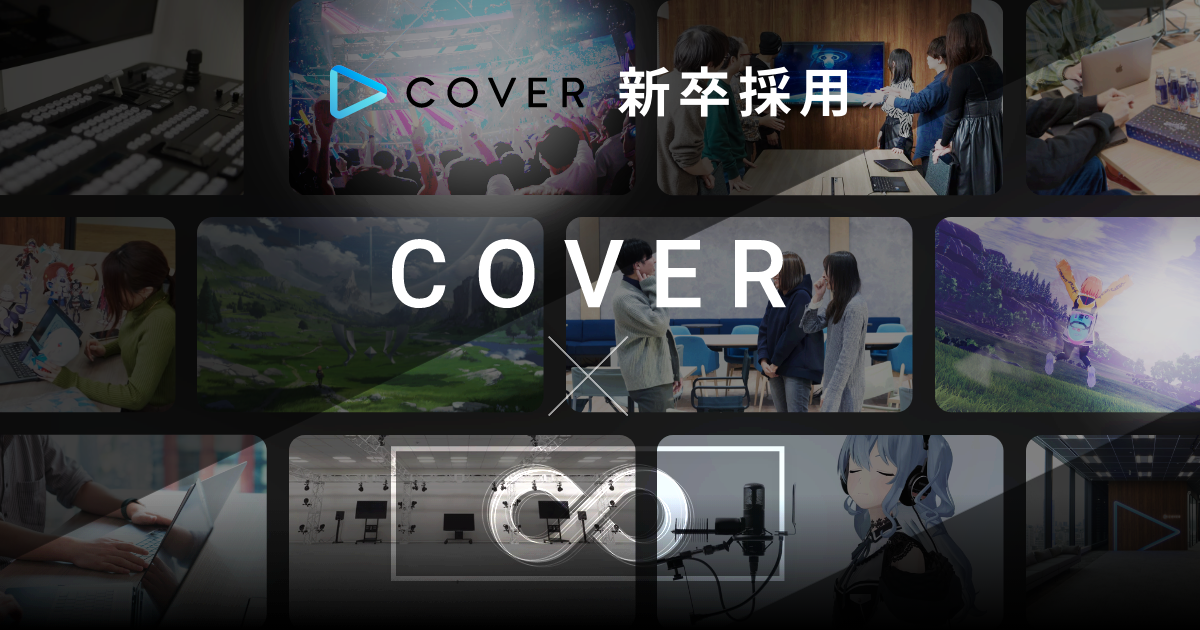
【2027年度 新卒】ビジネス職
ビジネス職は「海外事業推進」、「経営企画」、「コンテンツプロデュース」、「マーケティングプロモーション」、「グッズ商品企画」「タイアップ企画営業」「ライツビジネス」などがあり、当社の事業推進のために重要となる業務をお任せします。
詳細・応募はこちら
-

【2027年度 新卒】デザイナー
デザイナーは下記2つのポジションを募集しております、配属はご希望と適性に合わせて決定します。 ■3DCGアーティスト ■イラストレーター
詳細・応募はこちら
-

【2027年度 新卒】エンジニア
エンジニアは下記3つのポジションを募集しております。 配属はご希望と適性に合わせて決定します。 ■バックエンドエンジニア ■クライアントエンジニア ■AIエンジニア
詳細・応募はこちら
-

【2027年度 新卒】アシスタントディレクター
それぞれのプロダクションにおけるYouTubeチャンネルでの番組の制作業務に関わっていただきます。 YouTubeチャンネルでの生放送番組・収録番組の企画立案から、多くの部署が関わって番組を作り上げていくため配信や収録が円滑に完了できるよう、番組制作の進行管理・ディレクション業務をお任せします。
詳細・応募はこちら



